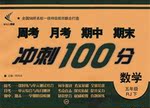题目内容
I work in a company in India which has branches in Germany and the UK,so I take business trips to these places.We have a tradition at the company that anybody coming back to India from a foreign country gets for all the other members of the company.Naturally the chocolates are finished in no time because everyone them and tries to get as many as possible.
I that the housekeeping staff members never had the chance to get even a single chocolate maybe because they were not as quick as others to take the chocolates.I felt it was to them.
Recently, I came back to India from Munich and I had a lot of chocolates for them.I met one of the housekeeping staff members called Babu.I gave him a packet of chocolates and told him to distribute(分发)them in his department.His face lit up with joy and thanked me again and again,which made me very happy.
But the didn’t end here.The best part of it was that Babu actually distributed the chocolates to in the company equally instead of just distributing them among members in his .So it was so touching for me to see this.
I find it really hard to why we,who have the money to buy chocolates and other goodies,do not feel like but just think about how to get more. ,Babu,who earns only just about enough to raise his family, was so generous and did not even one extra chocolate for himself.I want to request all of us learn from Babu for being so and caring!
I that the housekeeping staff members never had the chance to get even a single chocolate maybe because they were not as quick as others to take the chocolates.I felt it was to them.
Recently, I came back to India from Munich and I had a lot of chocolates for them.I met one of the housekeeping staff members called Babu.I gave him a packet of chocolates and told him to distribute(分发)them in his department.His face lit up with joy and thanked me again and again,which made me very happy.
But the didn’t end here.The best part of it was that Babu actually distributed the chocolates to in the company equally instead of just distributing them among members in his .So it was so touching for me to see this.
I find it really hard to why we,who have the money to buy chocolates and other goodies,do not feel like but just think about how to get more. ,Babu,who earns only just about enough to raise his family, was so generous and did not even one extra chocolate for himself.I want to request all of us learn from Babu for being so and caring!
| 小题1: |
|
| 小题2: |
|
| 小题3: |
|
| 小题4: |
|
| 小题5: |
|
| 小题6: |
|
| 小题7: |
|
| 小题8: |
|
| 小题9: |
|
| 小题10: |
|
| 小题11: |
|
| 小题12: |
|
| 小题13: |
|
| 小题14: |
|
| 小题15: |
|
小题1:D
小题2:B
小题3:A
小题4:C
小题5:A
小题6:D
小题7:B
小题8:C
小题9:A
小题10:D
小题11:C
小题12:B
小题13:C
小题14:A
小题15:D
试题分析:通过公司人员分巧克力作者注意到,服务人员得不到巧克力,这一次他专门买了一盒巧克力让一个叫Babu的服务人平均分给他所在的部门的人,可是他却分给了公司所有的人。这让作者感触颇深。也号召大家都要学会分享,待人宽厚仁慈 。
小题1:考查副词辨析及对语境的理解。A.rarely罕见地;B.seldom很少;C.never从不;D.often经常。我在印度的一家公司工作,这家公司在德国和英国设有分部,所以我经常出差到这些地方。根据第一句可知,选D。
小题2:考查名词辨析及对语境的理解。A.gifts礼物;B.chocolates巧克力;C.1etters信;D.postcards卡片。在公司我们有一个传统,从国外回到印度本公司的任何人都要给所有其他成员买巧克力。根据下一句可知,选B。
小题3:考查动词辨析及对语境的理解。 A.loves爱;B.deserves应得;C.smells 闻;D.touches接触。自然,那些巧克力立刻都被分光了,因为每个人都喜爱他们,并尽可能多拿。根据tries to get as many as possible可知是喜爱,故选A。
小题4:考查动词辨析及对语境的理解。A.argued争论;B.thought认为;C.noticed注意到;D.mentioned提到。我注意到那些服务人员从来没有机会得到哪怕是一块巧克力,也许是因为他们并不像其他人拿巧克力的速度快。这里是发现了一个问题,用注意到更合适,故选C。
小题5:考查形容词辨析及对语境的理解。A.unfair不公平;B.strange奇怪的;C.special特殊的;D.important重要的。服务人员一块巧克力豆没有得到过,我觉得这对他们不公平。故选A。
小题6:考查动词辨析及对语境的理解。A.received得到;B.exchanged交换;C.discovered发现; D.bought买。最近,我从慕尼黑回到印度,我给他们买了一大堆巧克力。根据前文和后面的…have the money to buy chocolates可知,选D。
小题7:考查副词辨析及对语境的理解。A.carefully仔细地;B.equally平均地;C.generously慷慨地;D.positively肯定地。我遇到了一个叫Babu的服务人。我给了他一包巧克力,并告诉他平均分发给和他在同一部门的人。根据Babu actually distributed the chocolates to 34 in the company equally可知,选B。
小题8:考查名词辨析及对语境的理解。 A.management管理;B.meeting见面;C.story故事; D.discussion讨论。他的脸上洋溢着喜悦和一次又一次地感谢我,这使我非常高兴。但这件事并没有就此结束。故选C。
小题9:考查代词辨析及对语境的理解。 A.everyone每个人;B.nobody没人;C.someone有人;D.anyone任何人。整件事最精彩的是Babu实际上是把巧克力平均分发给公司所有的人而不仅仅是他那一个部门的人。
故选A。
小题10:考查名词辨析及对语境的理解。A.shop商店;B.neighborhood社区;C.club 俱乐部;D. department部门。他不是把巧克力分发给他所在的部门的人而是公司全体人员,看到这令我感触颇多。
故选D。
小题11:考查动词辨析及对语境的理解。A.apologize道歉;B.believe相信;C.understand 理解;D.predict预测。我发现真的很难理解:为什么我们这些人有钱买巧克力和其他好吃的东西,不想分享,只是想着如何得到更多。通过Babu 的行为和其他人的行为,我思考了这个问题,百思不得其解。故选C。
小题12:考查非谓语动词辨析及对语境的理解。A.fighting斗争;B.sharing分享;C. competing竞争; D.communicating交流。为什么我们有钱买巧克力和其他好吃的东西,不是想要分享,只是想着如何得到更多。根据前面Babu给全公司的人分巧克力可知,选B。
小题13:考查副词辨析及对语境的理解。A.Therefore所以;B.Thus因此;C.However但是;D.So所以。前后对比,所以这里用However,意思是但是。只能挣养家的钱的Babu,却是这么慷慨,故选C
小题14:考查动词辨析及对语境的理解。 A.keep保持;B.pack打包;C.steal偷;D.store储存。甚至没有给他自己多留一块巧克力。故选A。
小题15:考查形容词辨析及对语境的理解。A.humorous幽默;B.clever聪明;C.faithful忠诚;D.kind我想要要求我们所有人向Babu学习,那么和气和关心人!故选D

练习册系列答案
 新非凡教辅冲刺100分系列答案
新非凡教辅冲刺100分系列答案
相关题目